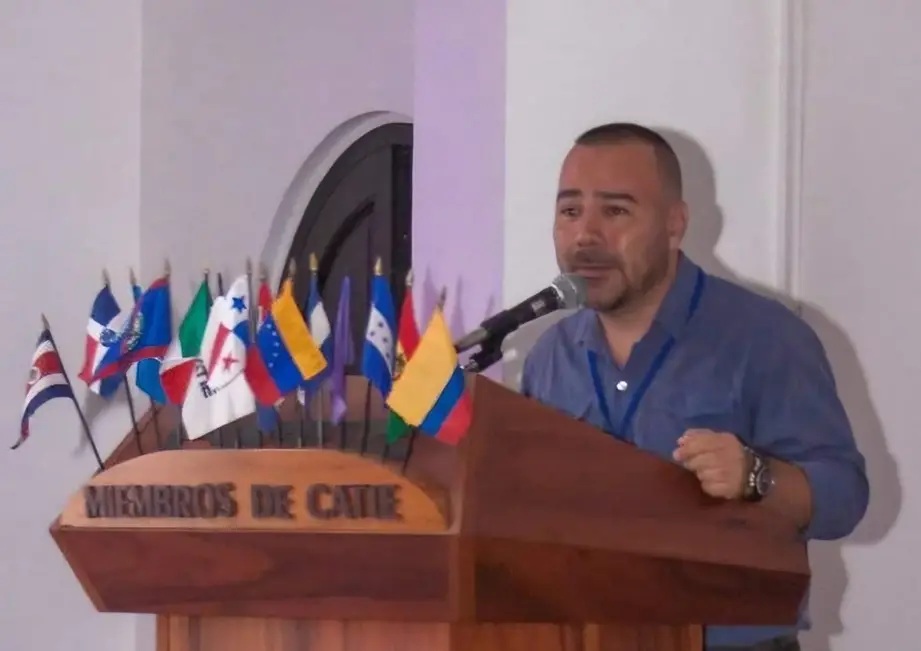In a controversial move that’s set to ignite political debate, the United States government plans to fund deportations of migrants specifically to Costa Rica, according to a confidential document recently revealed by Reuters. This policy could transform the dynamics of migration across Central America, leaving Costa Rica to grapple with significant humanitarian and logistical challenges.
Behind Closed Doors: The U.S. Funding Controversy
The leaked document highlights an unprecedented strategy by the U.S., proposing millions of dollars in funding to facilitate deportations to Costa Rica. While the precise figure remains confidential, initial reports suggest substantial financial support intended to bolster Costa Rica’s deportation capacities. This move aims to address increasing migration pressures at the U.S. southern border but raises serious ethical and practical questions.
Costa Rican officials have yet to publicly confirm or deny involvement in negotiations, fueling speculation and political tension within the nation. Meanwhile, rights advocates and humanitarian organizations are already sounding alarms, asserting the proposal could exacerbate existing humanitarian crises within Central America.
Why Costa Rica?
Historically seen as a beacon of stability and relative prosperity in Central America, Costa Rica has become an attractive transit route for migrants traveling north. Recently, however, the nation faces a new trend: migrants traveling south due to stricter immigration policies implemented by the United States.
The Biden administration’s move mirrors earlier tactics seen during the Trump administration, albeit with different execution methods. With asylum pathways significantly narrowed, migrants increasingly find themselves stuck, creating unprecedented strain on Central American countries like Costa Rica.
Potential Impacts and Challenges for Costa Rica
Costa Rica already struggles under the weight of significant migrant inflows from neighboring countries such as Nicaragua and Venezuela. The new U.S. proposal threatens to amplify these pressures dramatically. Local resources—already stretched thin—risk being overwhelmed, leading to potential socio-economic instability and escalating tension between migrant populations and local communities.
Logistical challenges will also be substantial. Deportation processes require extensive coordination, resources, infrastructure, and human capital—none of which Costa Rica has in abundance for handling an intensified influx of deportees. This looming logistical nightmare might significantly burden the nation’s finances and public institutions.
Humanitarian Outcry and Ethical Concerns
Global human rights watchdogs and local NGOs have sharply criticized the U.S. plan, arguing that it transfers responsibility unfairly onto nations least equipped to manage massive migrant populations. Amnesty International and Human Rights Watch warn that such a policy could potentially violate international law, specifically the principle of non-refoulement, by indirectly compelling migrants into environments where their rights may not be adequately protected.
The potential implications for human rights are severe. Critics worry deported migrants might face increased vulnerability to exploitation, violence, and poverty. Many deportees could become effectively stranded, with limited access to employment, healthcare, and essential social services.
Domestic Political Fallout in Costa Rica
Internally, the political ramifications of accepting U.S. deportation funding could be explosive. President Rodrigo Chaves’ administration faces mounting criticism over various domestic issues, from economic challenges to infrastructure problems. Accepting a controversial and potentially destabilizing agreement with the United States could trigger significant backlash from citizens, opposition parties, and civil society.
This potential crisis arrives at a particularly delicate time for Costa Rica, already dealing with economic slowdown and political scandals. Analysts predict this issue could become a defining political flashpoint in upcoming electoral cycles, significantly reshaping Costa Rican domestic politics.
U.S. Policy Repercussions and International Relations
On the international stage, the Biden administration’s move could further strain relationships with Central American nations. Regional cooperation on migration—already fragile—could deteriorate rapidly, undermining long-term U.S. interests in promoting stability and cooperation in the region.
Critics argue that rather than solving migration challenges, such strategies merely shift problems geographically, exacerbating regional instability. This controversial policy could potentially backfire, driving further migration and instability, precisely the opposite outcome intended by policymakers.
The Road Ahead
As this controversial proposal moves from a confidential document to potential implementation, Costa Rica stands at a critical crossroads. Government leaders must balance international diplomatic pressures, domestic political risks, and profound ethical questions.
In the coming weeks, Costa Rica’s official response will likely shape not only its immediate future but also regional migration dynamics. Stakeholders from human rights groups to international observers will closely watch, ready to advocate vigorously for more humane and equitable solutions.
As this drama unfolds, one fact remains clear: decisions made in the corridors of power will profoundly impact thousands of lives across Central America, with Costa Rica squarely in the crosshairs.
Source link
Admin



